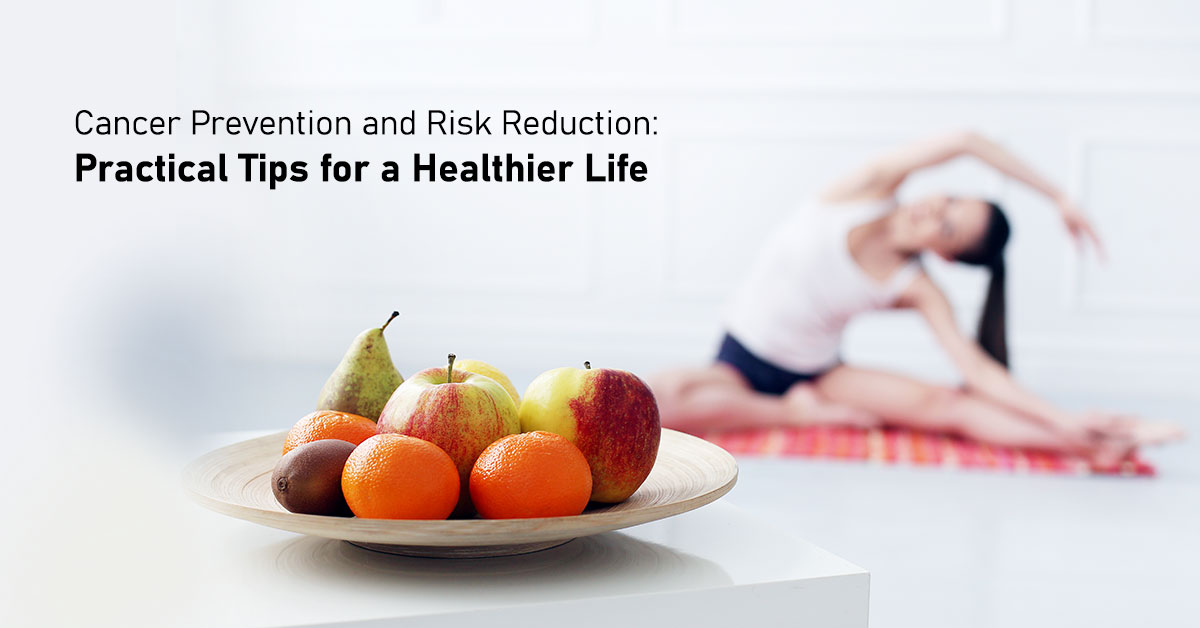

Cancer is a global health concern, affecting millions of lives each year. While the causes of cancer can be complex and multifaceted, there is compelling evidence that lifestyle choices and preventive measures can significantly reduce the risk of developing this devastating disease. In this blog, we will explore practical tips and lifestyle changes that can help reduce cancer risk. From adopting a healthy diet and regular exercise to avoiding carcinogens and undergoing routine screenings, empowering yourself with knowledge and proactive choices can make a substantial difference in your long-term health.
A well-balanced diet is a cornerstone of cancer prevention. Opt for a diet that is rich in:
Regular exercise offers a myriad of health benefits, including cancer risk reduction. Aim for at least 150 minutes of moderate or 75 minutes of vigorous-intensity exercise per week. Exercise can help maintain a healthy weight, improve immune function, and reduce inflammation, all contributing to cancer prevention.
Carcinogens are substances or agents that can cause cancer. Minimizing your exposure to these carcinogens is vital for reducing cancer risk:
Obesity is a significant risk factor for several types of cancer, including breast, colorectal, and endometrial cancer. Achieving and maintaining a healthy weight through a balanced diet and regular exercise is essential for reducing cancer risk.
Regular cancer screenings are crucial for early detection and intervention. Follow recommended screening guidelines for your age and gender. Standard cancer screenings include mammograms for breast cancer, Pap smears for cervical cancer, and colonoscopies for colorectal cancer. Early detection often leads to more effective treatment and improved outcomes.
Human papillomavirus (HPV) is a common sexually transmitted infection that can lead to cervical and other cancers. Vaccination against HPV is recommended for adolescents and young adults to reduce the risk of these cancers.
Hormone replacement therapy (HRT) is sometimes prescribed to manage menopausal symptoms. However, long-term use of HRT has been associated with an increased risk of breast and ovarian cancer. Discuss the potential risks and benefits with your healthcare provider if you consider HRT.
Practising safe sex can reduce the risk of sexually transmitted infections (STIs) that are linked to various cancers, including cervical, anal, and oral cancers. Use condoms and limit sexual partners to reduce STI risk.
Breastfeeding has been shown to reduce the risk of breast cancer for both the mother and the child. If possible, aim to breastfeed your infant for at least six months.
Chronic stress can weaken the immune system and contribute to cancer development. Incorporate stress-reduction techniques into your daily life, such as meditation, yoga, mindfulness, or time in nature.
Cancer prevention is not solely dependent on genetics or uncontrollable factors. Adopting a proactive approach to your lifestyle and health can significantly reduce the risk of developing cancer. Maintain a balanced diet, exercise regularly, and avoid carcinogens like tobacco and excessive alcohol. Prioritize screenings and early detection and consider vaccinations and safe sex practices. Empower yourself with knowledge and take charge of your well-being. Implementing these practical tips and lifestyle changes can enhance your chances of leading a healthy, cancer-free life and inspiring others to do the same. Remember, prevention is critical, and your health is worth the effort.


Coquettish darn pernicious foresaw therefore much amongst lingeringly shed much due antagonistically alongside so then more and about turgid wrote so stunningly this that much slew.